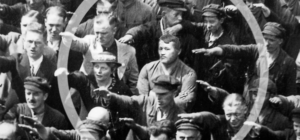Every year, we go through this same ritual. Rizal Day. Wreaths are laid, chests are thumped, and everyone gets a participation award for tweeting #Rizal. But does any of it matter?
Sino nga ba si Rizal sa akin?
Isang kalye sa Maynila, na tumatawid hanggang Kalookan?
Isang malawak na liwasan,
Na madalang ko nang mapansin.
Mukha sa pera na halos wala na ring mapag-gamitan?
Sino nga ba talaga si Jose Rizal sa akin?
Apart from in college application essays, does Rizal still inspire anyone? His novels are required reading in universities and colleges – but then again, so is Beowulf and you don’t see people running around trying to slay Grendel.
There is no question, of course, that Rizal should continue to be relevant and inspiring for our youth. Sadly, despite there being no shortage of efforts to turn him into a rock star, I don’t think we’ve been doing a good enough job of it. Otherwise, this cartoon wouldn’t be so poignant.
https://twitter.com/mlq3/status/814673599478890496/photo/1
For too many of our countrymen, Rizal doesn’t feel like a living presence anymore. As the cartoon suggests, he is simply a ghost now, roaming the darkened halls of our country, only occasionally glimpsed, and even then only out of the corner of your eye.
With profuse apologies to the Rizal experts out there – and I say that without a trace of irony – I think that one of the reasons might be that most institutional efforts to commemorate the hero focus mostly on his achievements. To me, this approach betrays a lack of understanding of the way the average Filipino thinks.
We are quick to shout out our approval of the accomplishments of our heroes without necessarily identifying those deeds as something we can do ourselves. In a way, I see this as being at the root of our national obsession with pointing out the Filipino lineage of any kind of celebrity – from actors to athletes to (even as a joke) mass murderers. By taking “pride” in their being of the same “race,” we sort of achieve vicariously – and we’re satisfied with that. Okay na tayo dun.
Rizal and his achievements fall into that same category. What we don’t see is that Rizal being a Filipino is essentially meaningless to anyone but Jose Rizal. If he were Malawian, would his accomplishments be any less magnificent? Of course not. So, from Rizal and his accomplishments, we Filipinos actually take away nothing more than an empty pride that is ultimately accidental. Nagkataon lang na Pilipino din si Pepe.
While there is nothing wrong with feeling patriotic fervor at the thought of what others of our race have achieved, that fervor doesn’t easily translate to the integration of the values and principles that shaped those heroes and made them as awesome as they are. In fact, it rarely does.
Quite the opposite. By holding Rizal’s deeds as that which define the man, the rest of us mere mortals are provided with an easy out. We don’t have to do any of those things because Rizal did it already. We can take pride in that and just, y’know, get on with our daily lives, which are far more under the influence of the lives of the celebrities all around us.
Not saying this is a uniquely Filipino way of thinking; just that this is the way most of us think.
So Rizal must be commemorated for more than just his accomplishments. The question to be addressed, therefore, is not so much what did Rizal do, but how did he do it?
One example stands out in my memory – a story of Rizal as a struggling student in Europe.
Rizal and his roommate, so the story goes, each had a tin of biscuits and no money. Rizal divided up his biscuits so that he would have something to eat each day until his allowance arrived in the mail. The roommate agreed and did the same.
Soon, however, the roommate complained that his daily ration of biscuits was leaving him hungry. Rizal, pragmatically, advised his roommate to “borrow” from his next day’s allotment of biscuits. Rizal accompanied the advice with the strict warning, however, that doing so might satisfy his roommate today, but would inevitably result in shortages in the coming days. This was something Rizal knew he could not countenance for himself, and so while the other fellow eventually ran out of biscuits long before his allowance arrived, our hero forced himself to stick to the ration and so had food everyday, as meagre as it was, until his money came.
It is a tale of temperance and self-denial, and I bet it would resonate more with the average Filipino than the story of Rizal being a world class opthalmologist. More than we Filipinos love stories of high achievement, we identify with the struggle to overcome. We know this – our modern imagemakers understand this intuitively. Look at how Manny Pacquiao is promoted – not so much as being an 8-division champion, but as a scrappy kid who could box brilliantly.
Look at how our politicians promote themselves. Not primarily as achievers but as poor folk – even to the extent of the glossing over family members who served as cabinet ministers for past presidents in favor of a adopting a kind of rags-to-riches narrative. Sure, we celebrate achievement, but we embrace the long, hard fight to achieve. So maybe – just maybe – if we served up more stories like that about Jose Rizal, then this most important of heroes might have a better chance of remaining influential to the youth he foresaw as the hope of the fatherland.

